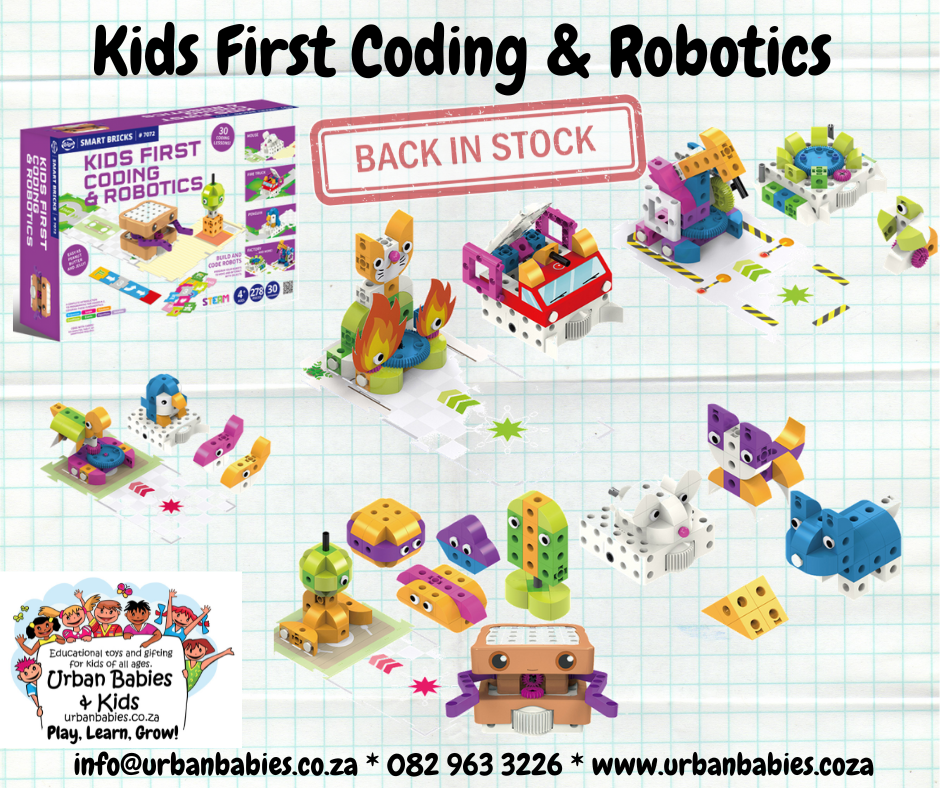Looking for something specific?
Can’t find what you are looking for? Need something specific, then get in touch and we’ll try source for you!

In today’s digital age, coding and robotics have emerged as crucial components of early childhood development. While traditionally associated with older children or adults, these skills are now recognized as vital tools for fostering growth in young learners. Introducing coding and robotics during early childhood can enhance creativity, problem-solving skills, and cognitive development, laying a strong foundation for future success.
1. Developing Problem-Solving Skills
Coding and robotics encourage children to think critically and solve problems. By working on projects that require them to find solutions to challenges, kids learn to approach problems methodically and creatively. This process fosters resilience and perseverance as they experiment, fail, and succeed, building a growth mindset that is valuable in all areas of life.
2. Enhancing Creativity and Innovation
Engaging with coding and robotics allows children to express their creativity in new and exciting ways. Whether they are creating a simple animation or programming a robot to perform a task, children are given a blank canvas to bring their ideas to life. This innovative thinking inspires a love of learning and exploration, encouraging children to imagine and invent.
3. Building Computational Thinking
Learning to code helps children develop computational thinking, a skill set that involves breaking down complex problems into manageable parts and creating step-by-step solutions. This type of thinking is not limited to programming but is applicable in everyday tasks and decision-making processes. Early exposure to coding helps children develop logical reasoning and analytical skills that are essential in today’s technology-driven world.
4. Promoting Collaboration and Teamwork
Coding and robotics often involve group projects, which promote collaboration and teamwork among children. Working together to solve problems and complete tasks helps children develop communication skills and learn the value of listening to and respecting others’ ideas. These social interactions are critical for building empathy and preparing children for collaborative environments in school and beyond.
5. Preparing for the Future
Incorporating coding and robotics into early childhood education prepares children for the future workforce. As technology continues to evolve at a rapid pace, having a basic understanding of coding and robotics can open doors to a wide range of career opportunities. By starting early, children gain a competitive edge and the confidence to navigate the digital landscape.
6. Encouraging Lifelong Learning
Introducing coding and robotics at a young age fosters a love for lifelong learning. Children who engage with these subjects often develop a curiosity about how things work and a desire to learn more. This inquisitive nature drives them to explore new topics and acquire new skills, setting the stage for continuous personal and professional development.
Incorporating coding and robotics into early childhood development offers a wealth of benefits that extend far beyond the digital realm. By nurturing critical thinking, creativity, and collaboration, these skills prepare young learners to thrive in an ever-changing world. It is an investment in their future, equipping them with the tools they need to succeed and making them more adaptable, innovative, and confident individuals.
Can’t find what you are looking for? Need something specific, then get in touch and we’ll try source for you!
Urban Babies began in 2007. It was started mainly because I could not get decent wooden toys for my own daughter especially ones with paint that was safe for little ones, because everything goes into their mouth when they are small as every parent knows!
© All rights reserved. Urban Babies & Kids
This website uses cookies so that we can provide you with the best user experience possible. Cookie information is stored in your browser and performs functions such as recognising you when you return to our website and helping our team to understand which sections of the website you find most interesting and useful.
Strictly Necessary Cookie should be enabled at all times so that we can save your preferences for cookie settings.
If you disable this cookie, we will not be able to save your preferences. This means that every time you visit this website you will need to enable or disable cookies again.